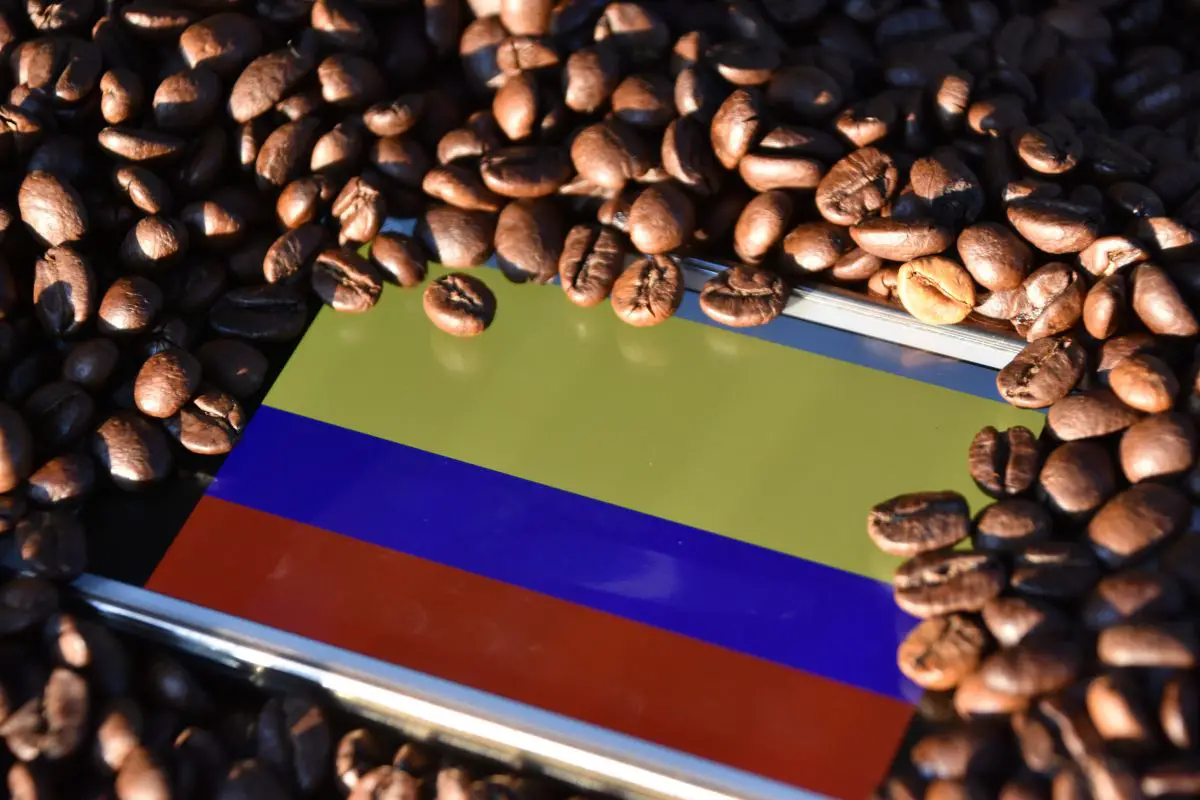Colombian coffee, a brew that tantalizes the senses, has earned global acclaim for its exceptional quality and distinctive flavors. Like a symphony of aromas, Colombian coffees orchestrate a harmonious blend of rich flavors, captivating the palates of coffee enthusiasts worldwide. Produced in diverse regions nestled amidst the verdant landscapes of Colombia, each bean tells a unique story, encapsulating the essence of its origin.

From the lush valleys of Quindio to the mystical mountains of Sierra Nevada, the country’s coffee regions boast a treasure trove of exquisite flavors waiting to be explored.
In this article, we delve into the world of Colombian coffees, exploring the popular brands, the choice between Arabica and Robusta beans, and the art of brewing the perfect cup. We also shed light on sustainable coffee production practices, ensuring that the pursuit of coffee excellence is accompanied by a commitment to environmental stewardship.
Join us on this journey as we uncover the finest Colombian coffees, providing you with an enlightening and enriching experience.
Key Takeaways
- Colombian coffee is globally acclaimed for its exceptional quality and distinctive flavors.
- Colombian coffee is produced in diverse regions with unique stories and origins.
- Colombian coffee brands prioritize sustainability, organic farming practices, and reducing their carbon footprint.
- Colombian coffee is known for its well-balanced flavor profile and medium to high acidity.
Colombian Coffee Regions
Colombian coffee regions are renowned for their distinct flavors and diverse profiles, making them a captivating subject for coffee enthusiasts and connoisseurs alike. The country’s unique geography, which includes a range of altitudes, soil types, and climates, contributes to the exceptional quality and complexity of Colombian coffee.
There are three main regions where coffee is grown: the Andean region, the Central region, and the Sierra Nevada de Santa Marta region.
The Andean region, located in the mountains, is known for producing coffee with a bright acidity and medium body.
The Central region, situated in the central part of the country, features coffee with a balanced flavor profile and a medium body.
The Sierra Nevada de Santa Marta region, located in the northernmost part of Colombia, produces coffee with a distinctive fruity and floral aroma.
Each region has its own microclimates, allowing for the cultivation of different coffee varietals. Additionally, Colombian coffee growers adhere to strict quality standards and sustainable farming practices, ensuring the safety and traceability of their products.
Transitioning to the subsequent section about popular Colombian coffee brands, it is important to note that these regions serve as the foundation for the exceptional coffees produced by renowned Colombian brands.
Popular Colombian Coffee Brands
In this discussion, we will explore the top coffee brands in Colombia and examine the factors that set them apart from other brands.
Colombia is renowned for producing high-quality coffee, and its coffee industry is highly competitive.
By delving into the various brands, we can gain a comprehensive understanding of the distinct characteristics and unique selling points that make these Colombian coffee brands stand out in the global market.
Discover the top coffee brands in Colombia

Renowned for their rich and unparalleled flavors, the coffee brands hailing from the land of fertile plantations and passionate coffee growers have captivated the palates of coffee enthusiasts worldwide. Colombia is home to some of the best coffee brands in the world, known for their exceptional quality and distinct characteristics.
Here are three of the top coffee brands in Colombia:
- Juan Valdez: This iconic brand represents the Colombian Coffee Growers Federation and is known for its commitment to sustainability and fair trade practices.
- Café Devoción: With a focus on single-origin coffees, Café Devoción sources its beans from various regions in Colombia, allowing customers to experience the unique flavors of each terroir.
- La Bastilla: This brand stands out for its dedication to organic farming practices and its emphasis on preserving the environment while producing high-quality coffee.
Discover what sets these brands apart from others and learn more about the fascinating Colombian coffee industry.
Find out what sets these brands apart from others
Distinctive characteristics and a dedication to sustainability and organic farming practices are what sets these exceptional coffee brands from Colombia apart from others in the industry. These brands prioritize quality and flavor, ensuring that each cup of coffee is a delightful experience for consumers. They carefully select the finest beans from the rich Colombian soil, known for producing some of the best coffee in the world.
Additionally, these brands focus on environmentally-friendly practices, promoting biodiversity and reducing their carbon footprint. They work closely with local farmers, providing fair wages and support to ensure a sustainable livelihood. The commitment to sustainability extends to their packaging as well, with an emphasis on recyclable materials.
These coffee brands prioritize the health and safety of their consumers, ensuring that every cup is of the highest quality.
Transitioning into the subsequent section about ‘arabica vs. robusta: the choice of beans’, it is important to understand the different types of beans that contribute to the unique flavors of Colombian coffee.
Arabica vs. Robusta: The Choice of Beans
Arabica and Robusta are two main types of coffee beans, each with distinct characteristics. Arabica beans are generally considered to be of higher quality and are preferred for high-quality Colombian coffees. This is because Arabica beans have a more complex flavor profile, lower acidity, and a smoother taste compared to Robusta beans.
Additionally, Arabica beans are often grown at higher altitudes, which contributes to their superior quality and flavor.
Understand the difference between Arabica and Robusta beans
Although often overshadowed by its more popular counterpart, Robusta coffee beans have their own unique qualities and characteristics that set them apart from Arabica beans.
Robusta beans are known for their higher caffeine content, which can be up to twice as much as Arabica beans. This makes Robusta coffee more stimulating and energizing.
Additionally, Robusta beans have a stronger and more bitter taste compared to the mild and delicate flavor of Arabica beans. They also have a thicker body and produce a thicker and more persistent crema when brewed, making them ideal for espresso.
However, Robusta beans are generally considered to be of lower quality compared to Arabica beans due to their lower acidity and less complex flavor profile.
Despite this, Robusta beans are an essential component in many coffee blends and are valued for their affordability and ability to withstand harsh growing conditions.
Understanding the differences between Arabica and Robusta beans is crucial in appreciating the unique characteristics each brings to the world of coffee. Learn why Arabica beans are preferred for high-quality Colombian coffees, as we explore their distinct qualities and the reasons behind their popularity in the next section.
Learn why Arabica beans are preferred for high-quality Colombian coffees
When it comes to high-quality Colombian coffees, Arabica beans are the preferred choice. Arabica is known for its superior taste and aroma, making it the go-to option for specialty coffees. These beans are grown at higher altitudes, which results in a slower maturation process and a more complex flavor profile.
Arabica beans have a lower caffeine content compared to Robusta beans, but they make up for it with their delicate and nuanced flavors that range from fruity and floral to caramel and chocolate. Colombian coffee farmers take great care in cultivating Arabica beans, ensuring that they are handpicked at the peak of ripeness. This attention to detail and commitment to quality is what sets Colombian Arabica coffees apart.
In the next section, we will delve into the fascinating world of coffee tasting notes.
Coffee Tasting Notes
One can discern the complex flavors of Colombian coffees through their distinct tasting notes that evoke images of rich cocoa, vibrant berries, and delicate floral undertones. Colombian coffee is known for its exceptional quality, and the tasting notes reflect the meticulous care and expertise that goes into its production.
When brewed, Colombian coffees often exhibit a smooth and well-balanced flavor profile, with a medium to high level of acidity. The cocoa notes provide a deep, rich taste that is reminiscent of dark chocolate, while the vibrant berry flavors add a touch of sweetness and brightness. Additionally, the delicate floral undertones offer a subtle and aromatic experience, enhancing the overall complexity of the coffee.
These tasting notes contribute to the allure and popularity of Colombian coffees among coffee enthusiasts worldwide. The distinct flavors and aromas make Colombian coffee a delightful and satisfying beverage to enjoy.
Transitioning into the subsequent section about sustainable coffee production in Colombia, it is important to consider how these tasting notes are achieved while maintaining environmentally friendly practices.
Sustainable Coffee Production in Colombia

Moving on from discussing the tasting notes of Colombian coffees, it is important to delve into the sustainable coffee production practices in Colombia. As a country known for its rich coffee heritage, Colombia has recognized the significance of sustainable farming methods to ensure the longevity of its coffee industry.
Sustainable coffee production involves the implementation of environmentally friendly techniques that minimize the negative impact on ecosystems and nurture the well-being of farmers. In Colombia, coffee farmers have embraced practices such as agroforestry, which promotes the cultivation of coffee plants alongside shade trees, enhancing biodiversity and providing natural pest control. Additionally, efforts have been made to reduce water usage, manage soil erosion, and implement organic farming practices.
Through certifications like Fairtrade and Rainforest Alliance, Colombian coffee producers are further encouraged to adopt sustainable practices and ensure fair treatment of workers. By prioritizing sustainability, Colombia is not only safeguarding its coffee industry but also contributing to global efforts towards a more sustainable future.
As we explore the brewing tips for the perfect Colombian coffee, it is essential to understand the impact of these sustainable practices on the overall coffee experience.
Brewing Tips for the Perfect Colombian Coffee
This discussion will focus on the best brewing methods for Colombian coffee and the proper preparation and serving techniques to achieve a delicious cup.
By exploring different brewing methods, coffee enthusiasts can discover the ideal way to extract the flavors and aromas unique to Colombian coffee beans.
Additionally, understanding the proper techniques for brewing and serving coffee will ensure a consistent and enjoyable experience for those indulging in this popular beverage.
Discover the best brewing methods for Colombian coffee
To unlock the rich and nuanced flavors of Colombian coffee, one must delve into the realm of brewing methods that serve as the alchemists of taste, transforming humble beans into a symphony of sensory delights.
Here are four brewing methods that can help you experience the best of Colombian coffee:
- Pour Over: This method involves pouring hot water over coffee grounds in a filter, allowing for a clean and bright cup of coffee.
- French Press: By steeping coffee grounds in hot water and using a plunger to separate the grounds, this method produces a full-bodied and robust cup of coffee.
- Aeropress: This versatile method uses air pressure to extract the flavors, resulting in a smooth and rich coffee with low acidity.
- Espresso Machine: With precise temperature and pressure control, an espresso machine can create a concentrated and intense cup of Colombian coffee.
By exploring these brewing methods, you can discover the perfect way to prepare and serve a delicious cup of Colombian coffee.
Learn how to properly prepare and serve a delicious cup of Colombian coffee
When it comes to enjoying a delicious cup of Colombian coffee, proper preparation and serving techniques are essential. To ensure a delightful and safe experience, it is crucial to follow certain guidelines.
Firstly, start with high-quality Colombian coffee beans, preferably freshly roasted. Grind the beans just before brewing to preserve their flavors and aromas.
The water used should be clean and preferably filtered, as impurities can affect the taste. The correct water-to-coffee ratio is important to achieve the desired strength.
Brewing methods such as pour-over, French press, or espresso machines can be used, depending on personal preference.
Serve the coffee in clean and heat-retaining cups to maintain its temperature and flavor. Accompany the cup of Colombian coffee with a glass of water to cleanse the palate and enhance the overall experience.
By following these steps, one can prepare and serve a delightful cup of Colombian coffee that satisfies even the most discerning coffee connoisseur.
Frequently Asked Questions
How long does it take for Colombian coffee to be harvested and processed?
Colombian coffee typically takes around 9 months to be harvested and processed. The process involves picking the ripe coffee cherries, removing the pulp, fermenting the beans, washing, drying, and then milling them before they are ready for export.
What is the difference between specialty Colombian coffee and regular Colombian coffee?
Specialty Colombian coffee refers to high-quality beans that meet specific criteria in terms of cultivation, processing, and taste. In contrast, regular Colombian coffee refers to a broader range of beans that may not meet the same quality standards.
Are there any specific health benefits associated with drinking Colombian coffee?
Colombian coffee consumption has been associated with a lower risk of certain health conditions. One study found that individuals who drank 3-5 cups of coffee per day had a 15% lower risk of developing heart disease compared to non-coffee drinkers.
Can Colombian coffee be used in espresso machines?
Yes, Colombian coffee can be used in espresso machines. Its rich flavor and medium to high acidity make it a popular choice for espresso. The high-quality beans ensure a consistent and flavorful espresso experience.
Are there any specific coffee certifications or labels to look for when purchasing Colombian coffee?
When purchasing Colombian coffee, it is advisable to look for specific certifications or labels to ensure quality and safety. Some certifications to consider are Fair Trade, Rainforest Alliance, and Organic, as they guarantee ethical and sustainable farming practices.
Conclusion
In conclusion, Colombian coffee is renowned for its rich flavor, smoothness, and aroma. The country’s diverse coffee regions, such as Huila, Antioquia, and Quindio, contribute to the unique taste profiles of Colombian coffees.
Popular Colombian coffee brands like Juan Valdez and Café de Colombia are known for their high-quality beans. Additionally, the choice between Arabica and Robusta beans impacts the flavor and characteristics of Colombian coffee.
Sustainable coffee production practices in Colombia ensure the longevity of the industry. One interesting statistic is that Colombia is the third-largest coffee producer in the world, highlighting the significance of the country’s coffee industry on a global scale.
Related articles: